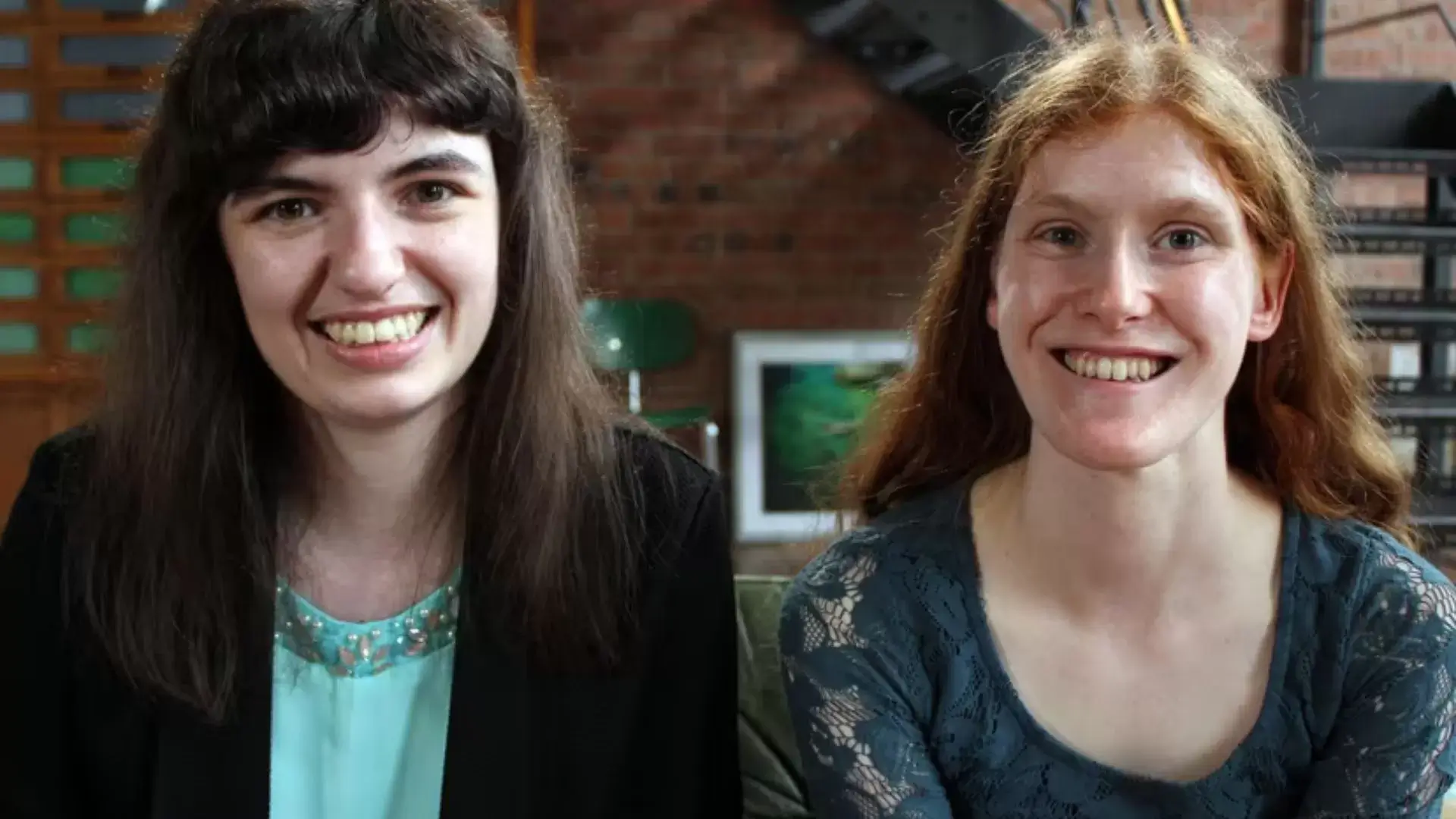Women's Mental Health Counselling Therapy for Autism Spectrum Disorder in Oakville
We recognize the unique challenges women face on the Autism Spectrum Disorder (ASD) in Oakville. Specialized women’s mental health counselling therapy offers a safe space to explore feelings and experiences related to ASD. This therapy not only addresses anxiety and depression but also focuses on resilience and emotional well-being. Through trauma-informed care and community support, we can foster understanding and empowerment. We also find strength in group therapy, connecting with others who share similar journeys. It’s important to embrace our individual strengths while maneuvering these complexities, and there’s so much more to uncover about fostering resilience and support available to us.

About Women's Mental Health Counselling Therapy
Oakville Women’s mental health counselling therapy focuses on understanding and addressing the unique challenges we face, especially when maneuvering through the complexities of Autism Spectrum Disorder. In our journey, mental health counseling provides a safe space where we can explore our feelings and experiences related to women’s mental health. It’s essential for us to engage in gender-specific therapy, as it recognizes how our experiences as women can shape our emotional landscape.
Through women’s therapy, we receive emotional support tailored to our needs, helping us manage anxiety and navigate life’s hurdles. This approach often incorporates trauma-informed care, acknowledging any past traumas while fostering resilience. By focusing on holistic wellness, we can develop coping strategies that empower us to thrive.
Moreover, seeking support from professionals who understand the intricacies of autism spectrum disorder can enhance our understanding of ourselves. Together, we can embrace women’s empowerment by recognizing our strengths and vulnerabilities. With the right guidance, we can cultivate a healthier relationship with ourselves, paving the way for a more fulfilling life. Let’s commence this journey of healing and growth, knowing we’re not alone in our struggles.
Exploring the Intersection of Women's Mental Health and Autism Spectrum Disorder
Steering through the challenges of Autism Spectrum Disorder often intertwines with our mental health journey, highlighting the need to understand how these experiences uniquely shape our lives as women. Many of us grapple with women’s emotional health issues, such as anxiety and depression, which can be exacerbated by the daily realities of neurodiversity. It’s essential to recognize that seeking women’s mental health counselling therapy can provide us with valuable coping strategies that enable us to foster emotional resilience.
Engaging in trauma recovery processes can also empower us to address past experiences that impact our present. Autism support groups offer a sense of community, reminding us we’re not alone in this journey. These spaces allow us to share our stories, learn from one another, and cultivate a deeper understanding of how autism affects our emotional well-being.

Navigating the Unique Challenges of Autism Spectrum Disorder in Women
Managing the unique challenges of Autism Spectrum Disorder as women often involves grappling with societal expectations and personal experiences that can feel overwhelming at times. We face social communication challenges that may not align with what’s expected, leading to feelings of isolation or anxiety. This is where women’s mental health support becomes vital.
Many of us experience heightened anxiety, making anxiety counseling a valuable resource to develop coping mechanisms tailored to our needs. Steering through sensory processing issues can further complicate our daily lives, impacting our emotional well-being. Understanding our autism diagnosis can empower us to embrace our differences and recognize that our developmental milestones may look different from others.
Engaging in trauma therapy can also be beneficial, as it allows us to address past experiences that may have shaped our current perspectives. By identifying and validating our unique challenges, we can cultivate resilience and foster a supportive community. Together, we can share insights and strategies that promote our mental health, enabling us to thrive in a world that often feels unaccommodating. It’s important to remember that we’re not alone in this journey, and support is available.
How Mental Health Counseling Supports Women Living with ASD
Finding the right mental health counseling can be a transformative step for us as women living with Autism Spectrum Disorder, helping us navigate our unique experiences and foster emotional well-being. Through specialized women’s counseling services, we can find support tailored to our specific needs, addressing challenges like emotional regulation and self-esteem.
Counseling provides us with valuable anxiety relief strategies, enabling us to manage overwhelming feelings in a safe environment. Many therapists offer trauma recovery programs that can help us process past experiences, allowing us to heal and grow. We can also explore practical tools, such as communication devices, which enhance our interactions and relationships.
Additionally, counseling often includes autism parenting strategies, guiding us in our roles as caregivers while nurturing our own mental health. Social skills training equips us with the tools to build connections and navigate social situations more effectively.
Accessing mental health resources is essential for our overall well-being. By seeking counseling, we affirm our journey and prioritize our mental health, ultimately empowering ourselves to live fulfilling lives as women with ASD.
Identifying Key Indicators of Autism Spectrum Disorder in Women
Recognizing the key indicators of Autism Spectrum Disorder in women can be challenging, as many symptoms may manifest differently than in men, often leading to late or missed diagnoses. Women might exhibit autism symptoms such as heightened sensitivity to sensory stimuli or difficulties in social interactions, but these can be masked by coping strategies learned over time.
It’s essential to acknowledge that symptoms can overlap with conditions like anxiety disorders and postpartum depression, complicating the assessment process. Gender-focused therapy can help us identify these nuances, ensuring a more accurate autism assessment.
We must prioritize emotional health and self-awareness in our journey. Engaging in psychotherapy for women provides a safe space to explore our experiences, validate our feelings, and develop coping strategies. This tailored approach can greatly improve our mental health care by addressing unique challenges faced by women with ASD.

Managing Anxiety and Depression in Women with Co-Occurring ASD
Many women with co-occurring Autism Spectrum Disorder often face the dual challenges of anxiety and depression, making it essential for us to explore effective strategies for support and healing. It’s important to recognize that these co-occurring conditions can greatly impact our daily lives, affecting our mental wellness and emotional recovery.
In our journey towards managing anxiety and depression, we can benefit from targeted depression treatment and psychotherapy tailored specifically for women with ASD. Seeking therapeutic support provides a safe space for us to express our feelings and learn coping strategies. Stress management techniques, such as mindfulness and relaxation exercises, can also play a significant role in reducing anxiety and fostering empowerment.
We can find strength in connecting with others who share similar experiences, as building a supportive community helps combat feelings of isolation. By prioritizing our women’s mental health, we can take steps towards understanding our emotions and reclaiming our well-being. Ultimately, it’s about empowering ourselves and harnessing the tools available to navigate the challenges of anxiety and depression, leading us towards a more fulfilling life. Together, we can embrace our unique identities and promote healing.
Leveraging Cognitive Behavioral Therapy (CBT) to Support Emotional Balance in Women with ASD
Cognitive Behavioral Therapy (CBT) offers us a powerful tool to help navigate our emotions and establish a sense of balance, especially as women with Autism Spectrum Disorder face unique challenges in managing our mental health. By focusing on the connection between our thoughts, feelings, and behaviors, CBT provides a structured approach to address anxiety and enhance our self-worth.
In our journey towards emotional trauma recovery, we can use CBT techniques to identify and challenge negative thought patterns that impact our daily lives. This process not only helps us gain insight into our emotions but also fosters resilience, allowing us to develop healthier coping strategies. Mindfulness practices integrated into CBT can further enhance our stress relief, enabling us to stay present and grounded amid overwhelming feelings.
As we engage in this behavioral therapy, we’re not just addressing our mental health; we’re cultivating a supportive community that understands our experiences. Together, we can empower one another to embrace our unique strengths and build emotional balance, ultimately improving our overall well-being. By leveraging CBT, we can take strides towards a healthier mindset, one that nurtures our identity as women with ASD.
Enhancing Social Communication and Building Stronger Peer Connections
As we work on building emotional balance through techniques like CBT, enhancing our social communication skills can greatly strengthen our peer connections and foster a sense of belonging. For many of us with autism spectrum disorder, social anxiety can make peer interactions challenging. By focusing on our communication skills, we can begin to navigate these situations with more confidence.
Participating in autism-friendly activities provides an excellent opportunity to practice our skills in a supportive environment. These activities not only promote emotional well-being but also allow us to connect with others who understand our experiences. Joining women’s support groups can further enrich our journey, offering a safe space to share challenges and successes related to social interactions.
Utilizing autism interventions that emphasize social communication can help us address any developmental delay we may face. Mental health therapy tailored to our needs can also play a vital role in boosting our self-esteem and resilience. Together, we can cultivate stronger peer connections, transforming social anxiety into enriching relationships that enhance our lives and foster a true sense of community.
Trauma-Informed Counseling for Women on the Autism Spectrum
Trauma-informed counseling offers us a compassionate approach to healing, recognizing the unique challenges women on the autism spectrum face in processing and coping with past traumas. This form of counseling prioritizes our psychological well-being, allowing us to explore women’s issues, including body image and the emotional impacts of grief.
In our sessions, we’ll engage in mindfulness-based therapy techniques that promote stress reduction and enhance our coping mechanisms. By focusing on trauma healing, we can better understand how our experiences shape our relationships and overall mental health. Relationship counseling becomes a safe space where we can discuss the intricacies of our connections, ensuring we feel validated and supported.
Moreover, mental health advocacy is essential in raising awareness about the specific needs of women with autism spectrum disorder, helping to dismantle stigma and improve access to resources. By coming together in this supportive environment, we empower each other to confront our challenges and foster resilience. Through trauma-informed counseling, we can set out on a transformative journey, nurturing our emotional growth and ultimately leading us to a healthier, more fulfilling life.
Utilizing Sensory Integration Techniques for Better Emotional and Behavioral Outcomes
Steering through the emotional and behavioral challenges that often accompany autism spectrum disorder can feel overwhelming, but utilizing sensory integration techniques can offer us effective strategies to enhance our well-being and connections. These techniques, grounded in sensory integration therapy, focus on understanding how sensory experiences influence our emotional and behavioral outcomes.
In our counseling for women, we prioritize holistic therapy approaches that cater to individual needs. By incorporating sensory integration into our autism treatment plans, we can learn to manage sensory sensitivities and enhance our overall emotional regulation. This not only supports personal growth but also fosters healthier interactions with others.
Mindfulness meditation is another powerful tool we can use alongside sensory integration techniques. By practicing mindfulness, we become more aware of our sensory experiences, allowing us to respond rather than react to overwhelming situations. This can lead to improved emotional outcomes and reduced anxiety.
Together, we can explore these strategies, creating a supportive environment that empowers us to navigate the complexities of autism spectrum disorder while enhancing our mental health. By embracing these techniques, we can find greater peace and connection in our lives.
Family Counseling's Role in Providing Stability for Women with Autism Spectrum Disorder
Family counseling plays an essential role in providing the stability and support that women with autism spectrum disorder need to thrive emotionally and socially. By focusing on women’s empowerment, we can help these individuals navigate the unique challenges they face. Family counseling offers a safe space where we can address concerns related to maternal mental health and mood disorders, fostering understanding and connection among family members.
Through open dialogue, we can enhance autism awareness within the family unit, ensuring that everyone is informed about the needs and strengths of their loved one. This knowledge promotes parental support, which is vital for implementing effective autism therapies and encouraging self-care practices.
Furthermore, family counseling supports inclusive education, helping families advocate for the best educational opportunities for women with autism. By empowering families to work together, we can create an environment where women feel understood and valued, ultimately leading to improved emotional well-being.
In essence, family counseling not only strengthens familial bonds but also lays the groundwork for success in various aspects of life, ensuring that women with autism spectrum disorder have access to the resources and support they deserve.
Strategies for Improving Executive Functioning and Navigating Life Transitions
Improving executive functioning is crucial for women with autism spectrum disorder as they navigate the complexities of life changes, and we can implement practical strategies to support their journey. By focusing on women’s empowerment, we can help them develop skills that enhance their decision-making and self-organization during significant life changes.
Creating an autism-friendly environment is essential. We can utilize visual schedules and reminders to simplify daily tasks. Additionally, establishing routines helps in managing expectations and reducing anxiety. For those with an individualized education plan, we should actively collaborate with educators to guarantee that these strategies are integrated into their learning experiences.
Utilizing autism resources, like support groups and workshops, can provide valuable tools for improving executive functioning. Encouraging participation in social skills training can also bridge the gap between neurotypical peers and women with autism, fostering greater understanding and acceptance.
We’re not just addressing a developmental disorder; we’re promoting autism acceptance and creating a supportive community. With these strategies, we can empower women with autism to cultivate resilience, embrace their unique strengths, and confidently navigate the changes life brings.
Adopting Holistic and Inclusive Methods in Autism Spectrum Therapy
In our journey to support women with autism spectrum disorder, adopting holistic and inclusive methods in therapy can make a profound difference in their overall well-being and quality of life. By integrating holistic methods into our approach, we empower women to explore their unique strengths and challenges, fostering a sense of self-worth that is essential for personal growth.
Gender-focused therapy allows us to address the specific experiences and societal pressures women face, ensuring that our mental health counseling is relevant and effective. Incorporating occupational therapy can help women develop independent living skills, enhancing their ability to navigate everyday challenges. Early intervention is critical, as it sets the foundation for successful outcomes in both personal and professional spheres.
Creating sensory-friendly environments is also fundamental; these spaces can alleviate anxiety and promote comfort during therapy sessions. In addition, autism education equips both clients and families with the knowledge to better understand autism spectrum disorder, facilitating a supportive network. Together, we can champion women’s empowerment and provide the tools necessary for women with ASD to thrive, ultimately improving their mental health and quality of life.
The Benefits of Group Therapy and Peer Networks for Women with ASD
Building on the holistic approaches we’ve discussed, group therapy and peer networks can provide women with autism spectrum disorder a supportive space to connect, share experiences, and foster friendships that enhance their mental well-being. These environments promote women’s empowerment, allowing us to embrace our unique identities and autistic traits in a safe setting.
In group therapy, we can explore coping strategies tailored to our specific needs, addressing identity issues that many of us face. The shared understanding among peers creates a strong sense of social support, where we can openly discuss our challenges and triumphs. This connection reduces feelings of isolation, making it easier for us to navigate our mental health journeys.
Additionally, participation in peer networks offers opportunities to learn from each other’s experiences, enriching our understanding of wellness. We can celebrate our successes together, providing motivation and encouragement. Ultimately, group therapy and peer networks not only enhance our mental health but also cultivate a sense of belonging, reminding us that we’re not alone in our experiences with autism spectrum disorder. Together, we can foster a community rooted in empathy, understanding, and resilience.
Accessing Tools and Resources for Autism Awareness and Advocacy
Accessing tools and resources for autism awareness and advocacy can empower us to enhance our understanding and support for one another in our journeys. By focusing on women’s empowerment, we can create a more inclusive environment that addresses the unique challenges faced by individuals with autism spectrum disorder (ASD). It’s essential to recognize that both high-functioning and low-functioning autism deserve our attention and compassion.
Engaging in autism advocacy involves sharing information and experiences that promote mental health and well-being. We can utilize various resources, such as local support groups, online forums, and educational materials that shed light on ASD. Gender-focused therapy can also be a valuable tool, allowing us to explore the specific needs of women on the spectrum.
Moreover, raising autism awareness through workshops and community events fosters understanding and reduces stigma. Together, we can create a supportive network that champions the rights and needs of women with ASD. By actively accessing these tools and resources, we not only improve our own lives but also contribute to a broader movement advocating for change and acceptance. Let’s stand together and make our voices heard.
Cultivating Empowerment and Emotional Resilience Through ASD Counseling for Women in Oakville
Cultivating emotional resilience through specialized ASD counseling can empower women in Oakville to embrace their unique strengths and navigate the challenges they face. By focusing on women’s empowerment, we can help each other better understand autism spectrum disorder (ASD) and its impact on our lives. Through mental health counseling, we can develop effective strategies to address sensory sensitivities and enhance our pragmatic language skills.
Together, we can work through the anxiety and depression that often accompany ASD. Counseling provides a safe space where we can openly discuss relationship issues and the emotional hurdles we encounter. As we share our experiences and learn from one another, we foster a sense of community that nurtures our growth.
About Town of Oakville
Nestled along the shores of Lake Ontario, Oakville offers us a vibrant community rich in resources and support for individuals with autism spectrum disorder and their families. At 123 ABC Road, we find various services dedicated to women’s empowerment, focusing on the unique challenges faced by women with autism. The local mental health facilities provide crucial depression counseling and gender-focused therapy that cater specifically to our needs.
In Oakville, we’re fortunate to have access to autism research initiatives and special education programs that aim to enhance understanding and support for autism and anxiety. These resources foster a nurturing environment where we can flourish and connect with others who share similar experiences.
Moreover, the town promotes maternal health initiatives, ensuring that mothers of children with autism receive the support they require. Together, we can create a stronger, more inclusive community that values the mental health and well-being of all its members. By utilizing these resources, we empower ourselves and each other, fostering a sense of belonging and resilience for women maneuvering the complexities of autism spectrum disorder in Oakville, Ontario.

Frequently Asked Questions
What Qualifications Should I Look for in a Mental Health Counselor for Asd?
When we’re looking for a mental health counselor for ASD, we should prioritize qualifications like relevant degrees in psychology or social work, along with specialized training in autism spectrum disorders. It’s also essential to take into account their experience working with individuals on the spectrum and their ability to create a supportive, understanding environment. We can also seek out counselors who use evidence-based therapies tailored to our needs, ensuring a compassionate approach to mental health.
How Do I Know if Therapy Is Right for Me or My Loved One?
When we consider if therapy is right for us or our loved ones, it’s important to reflect on our feelings and experiences. Do we feel overwhelmed, anxious, or stuck? If so, therapy might offer support and guidance. We should also think about our goals for therapy—whether it’s coping strategies, emotional growth, or better communication. Trusting our instincts and seeking professional help can lead us to a more fulfilling path together.
Are There Any Specific Local Resources for Women With ASD in Oakville?
When we think about resources for women with ASD in Oakville, we’re glad to know there are several options available. Local support groups, like those offered by community centers, can provide a sense of belonging and understanding. We can also explore specialized therapists who focus on women’s unique experiences with autism. Additionally, online forums and workshops can connect us with others facing similar challenges, enhancing our support network.
What Are the Costs Associated With Women's Mental Health Counseling in Oakville?
When it comes to the costs of women’s mental health counseling in Oakville, we’ve found that prices can vary widely. Typically, sessions range from $100 to $200 each, depending on the therapist’s experience and specialization. Some insurance plans may cover part of these costs, so it’s worth checking with our providers. We recognize that budgeting for mental health care can be challenging, and we’re here to help find the best options that suit our needs.
How Can Family Members Support Women With ASD During Therapy Sessions?
When it comes to supporting our loved ones during therapy sessions, we can encourage open communication and create a safe, non-judgmental space. It’s important we listen actively and validate their feelings, helping them feel understood. We can also remind them that it’s okay to take breaks if needed. By being patient and involved, we help foster a positive environment, making the therapy experience more beneficial and effective for everyone involved.

